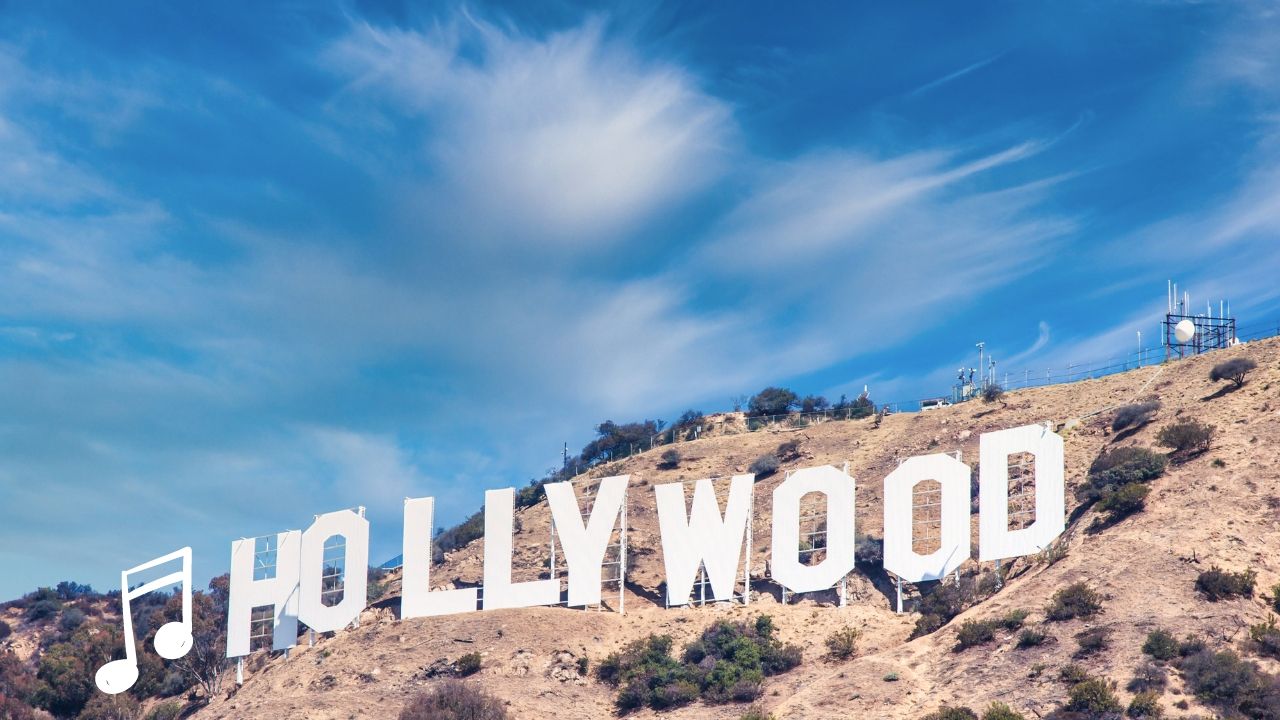The Hollywood music industry is a vibrant and dynamic sector that has significantly shaped global music trends. Known for its association with the film industry, Hollywood’s music scene has produced some of the most memorable soundtracks and influential artists. In this blog, we will explore the evolution, key players, and future of the Hollywood music industry.
A Brief History of the Hollywood Music Industry
The Hollywood music industry has a rich history that dates back to the early 20th century. The rise of Hollywood as a filmmaking hub naturally led to the development of a robust music industry to complement the visual medium. From silent films requiring live orchestras to the golden age of musicals in the 1950s, Hollywood has always placed a strong emphasis on the musical component of its productions.
Silent Era (1900s-1920s)
During the silent film era, live music was an essential part of the movie-going experience. Theaters employed musicians to play live scores that accompanied the films, enhancing the emotional and narrative elements. These performances ranged from solo pianists to full orchestras, depending on the theater’s resources.
Golden Age of Hollywood (1930s-1950s)
The 1930s marked the beginning of synchronized sound in films, leading to the development of original film scores. Composers like Max Steiner and Erich Korngold were pioneers in this era, creating scores that became integral to the storytelling process. Movies like “King Kong” (1933) and “Gone with the Wind” (1939) showcased the power of film music in enhancing cinematic experiences.
Key Milestones in the Hollywood Music Industry
The Birth of Film Scores
The advent of synchronized sound in the late 1920s and early 1930s revolutionized the Hollywood music industry. Max Steiner’s score for “King Kong” (1933) is often cited as one of the first significant film scores, setting the stage for future developments in the industry. His use of leitmotifs, recurring musical themes associated with characters or ideas, became a standard practice in film scoring.
The Golden Age of Musicals
The 1950s and 1960s were marked by the production of iconic musicals such as “Singin’ in the Rain” (1952), “West Side Story” (1961), and “The Sound of Music” (1965). These films featured elaborate musical numbers that were integral to the plot, showcasing the talents of composers, lyricists, and performers. Musicals became a staple of Hollywood, blending narrative and music in a way that captivated audiences worldwide.
The Rise of Pop Soundtracks
The 1980s introduced pop music into films, with soundtracks like “Footloose” (1984), “Dirty Dancing” (1987), and “Top Gun” (1986) becoming massive hits. These films utilized contemporary pop and rock music to appeal to younger audiences, significantly influencing the music charts. The success of these soundtracks demonstrated the commercial potential of integrating popular music into films.
Digital Revolution
The 2000s brought about digital advancements, changing how music was produced, distributed, and consumed within the Hollywood music industry. Digital audio workstations (DAWs) and software like Pro Tools revolutionized music production, making it more accessible and efficient. The rise of streaming platforms like Spotify and Apple Music transformed music distribution, allowing soundtracks to reach global audiences instantly.
Influence of the Hollywood Music Industry on Global Music
The Hollywood music industry has a profound influence on global music. Hollywood films are distributed worldwide, and their soundtracks often reach international audiences. This global reach has allowed Hollywood to set music trends and introduce new genres to diverse audiences.
Cultural Exchange
Hollywood soundtracks often incorporate diverse musical styles, promoting cross-cultural exchange. For example, Disney’s “The Lion King” (1994) featured African rhythms and melodies, introducing many listeners to these musical traditions. Similarly, “Slumdog Millionaire” (2008) showcased Indian music, leading to greater global appreciation of Bollywood soundtracks.
Popularizing Genres
Hollywood has played a significant role in popularizing various music genres. Jazz, for instance, became widely recognized through its use in films like “The Jazz Singer” (1927) and “Round Midnight” (1986). More recently, hip-hop has gained mainstream acceptance through movies like “8 Mile” (2002) and “Straight Outta Compton” (2015).
Famous Soundtracks and Their Impact
Hollywood soundtracks have left an indelible mark on the music industry. Some soundtracks have achieved legendary status, becoming cultural icons in their own right.
“Star Wars” by John Williams
The “Star Wars” soundtrack, composed by John Williams, is one of the most recognizable in film history. The score’s use of leitmotifs and orchestral grandeur has influenced countless composers and remains a benchmark for cinematic music. The iconic “Imperial March” and “Main Title” themes are instantly recognizable, transcending the films themselves.
“The Bodyguard” by Whitney Houston
The soundtrack for “The Bodyguard” (1992) is notable for Whitney Houston’s powerful performance of “I Will Always Love You.” The song became a global hit, topping charts worldwide and becoming one of the best-selling singles of all time. The success of this soundtrack highlighted the commercial potential of film music.
“Frozen” by Various Artists
Disney’s “Frozen” (2013) featured the hit song “Let It Go,” which became a global phenomenon. The song’s widespread appeal and commercial success demonstrated the power of animated film soundtracks. “Frozen” not only dominated the charts but also became a cultural touchstone, particularly among younger audiences.
Major Players in the Hollywood Music Industry
Composers
Composers are the backbone of the Hollywood music industry, creating the scores that define films. Legends like John Williams, Hans Zimmer, and Danny Elfman have crafted some of the most memorable film music in history. Their work spans various genres, from epic orchestral scores to innovative electronic compositions.
Music Supervisors
Music supervisors play a crucial role in selecting and licensing music for films. They work closely with directors and producers to ensure that the music complements the narrative and enhances the overall experience. Music supervisors are responsible for negotiating rights and securing the best tracks, making them essential to the filmmaking process.
Recording Studios
Iconic studios like Capitol Records and Abbey Road Studios are integral to producing Hollywood music. These studios provide the necessary infrastructure for recording high-quality soundtracks. Over the years, they have hosted numerous legendary recording sessions, contributing to their storied reputations.
The Role of Technology in the Hollywood Music Industry
Technology has revolutionized the Hollywood music industry. From digital audio workstations (DAWs) to advanced recording techniques, technology has enhanced the quality and accessibility of music production.
Digital Audio Workstations (DAWs)
DAWs like Pro Tools, Logic Pro, and Ableton Live have transformed the way music is created and produced. These software programs allow composers and producers to edit, mix, and master tracks with unprecedented precision and flexibility. DAWs have democratized music production, enabling independent artists to create professional-quality soundtracks.
Streaming Services
Streaming services like Spotify, Apple Music, and Amazon Music have changed how soundtracks are distributed and consumed. These platforms provide instant access to vast music libraries, allowing listeners to discover and enjoy film soundtracks with ease. Streaming has also opened new revenue streams for the Hollywood music industry, with royalties from digital plays contributing to the industry’s financial health.
Virtual Reality (VR) and Augmented Reality (AR)
VR and AR technologies are poised to create new ways for audiences to experience music. Imagine attending a virtual concert by a famous composer or exploring an interactive soundtrack in a virtual environment. These technologies offer exciting possibilities for immersive musical experiences, pushing the boundaries of traditional music consumption.
Challenges Facing the Hollywood Music Industry
Despite its successes, the Hollywood music industry faces several challenges that require continuous adaptation and innovation.
Piracy
Piracy remains a significant threat to the Hollywood music industry. Illegal downloads and streaming undermine revenue streams and devalue the hard work of artists and composers. The industry continues to combat piracy through legal measures and technological solutions, but it remains an ongoing issue.
Competition
With the rise of independent music production, Hollywood faces competition from non-traditional sources. Independent artists and producers can now create high-quality soundtracks without the need for major studios, thanks to affordable technology and distribution platforms. This shift challenges Hollywood to innovate and maintain its competitive edge.
Changing Consumption Habits
The shift from physical to digital media requires constant adaptation by the Hollywood music industry. As consumers increasingly favor streaming over purchasing physical albums, the industry must find ways to monetize digital consumption effectively. Adapting to these changing habits is crucial for sustaining profitability.
The Future of the Hollywood Music Industry
The future of the Hollywood music industry looks promising, with advancements in technology and changing consumer preferences shaping its evolution. Here are some key trends and predictions for the future:
Integration of AI in Music Production
Artificial Intelligence (AI) is set to revolutionize music production. AI algorithms can analyze musical patterns and generate compositions, providing composers with new tools to enhance creativity. AI can also assist in mixing and mastering, ensuring high-quality soundtracks with greater efficiency.
Expansion of Global Collaborations
As the world becomes more interconnected, the Hollywood music industry will likely see an increase in global collaborations. Artists and composers from different cultural backgrounds can collaborate more easily, leading to diverse and innovative soundtracks. These collaborations can introduce new musical styles and enrich the global music landscape.
Growth of Interactive Music Experiences
Interactive music experiences, facilitated by technologies like VR and AR, will become more prevalent. Audiences can engage with music in new and immersive ways, such as virtual concerts or interactive soundtrack exploration.
These experiences will enhance audience engagement and offer novel ways to enjoy music beyond traditional listening.
Sustainability in Music Production
Sustainability is becoming a crucial consideration in many industries, including the Hollywood music industry. Efforts to reduce the environmental impact of music production, such as using energy-efficient recording equipment and eco-friendly packaging for physical media, will likely increase. Additionally, virtual collaboration tools can reduce the need for travel, further lowering the industry’s carbon footprint.
Evolving Revenue Models
As digital consumption continues to dominate, the Hollywood music industry will need to innovate its revenue models. This may include exploring new monetization strategies such as microtransactions for interactive music experiences, exclusive content subscriptions, and leveraging blockchain technology for transparent and fair royalty distribution.
Conclusion
The Hollywood music industry has a storied past and a bright future. Its ability to adapt to changing technologies and consumer preferences ensures its continued relevance. As Hollywood continues to produce iconic soundtracks and foster musical innovation, its impact on global music remains undeniable. The industry’s evolution, driven by technological advancements and creative collaborations, promises to bring even more exciting developments in the years to come.
For further reading, explore these related articles:
- What Does a Sound Engineer Do in the Music Industry?
- The Role of Journalism in the Music Industry: Unveiling Truths and Celebrating Art
- Creating an Impressive Music Industry Resume: A Comprehensive Guide
For additional resources on music marketing and distribution, visit Deliver My Tune.






